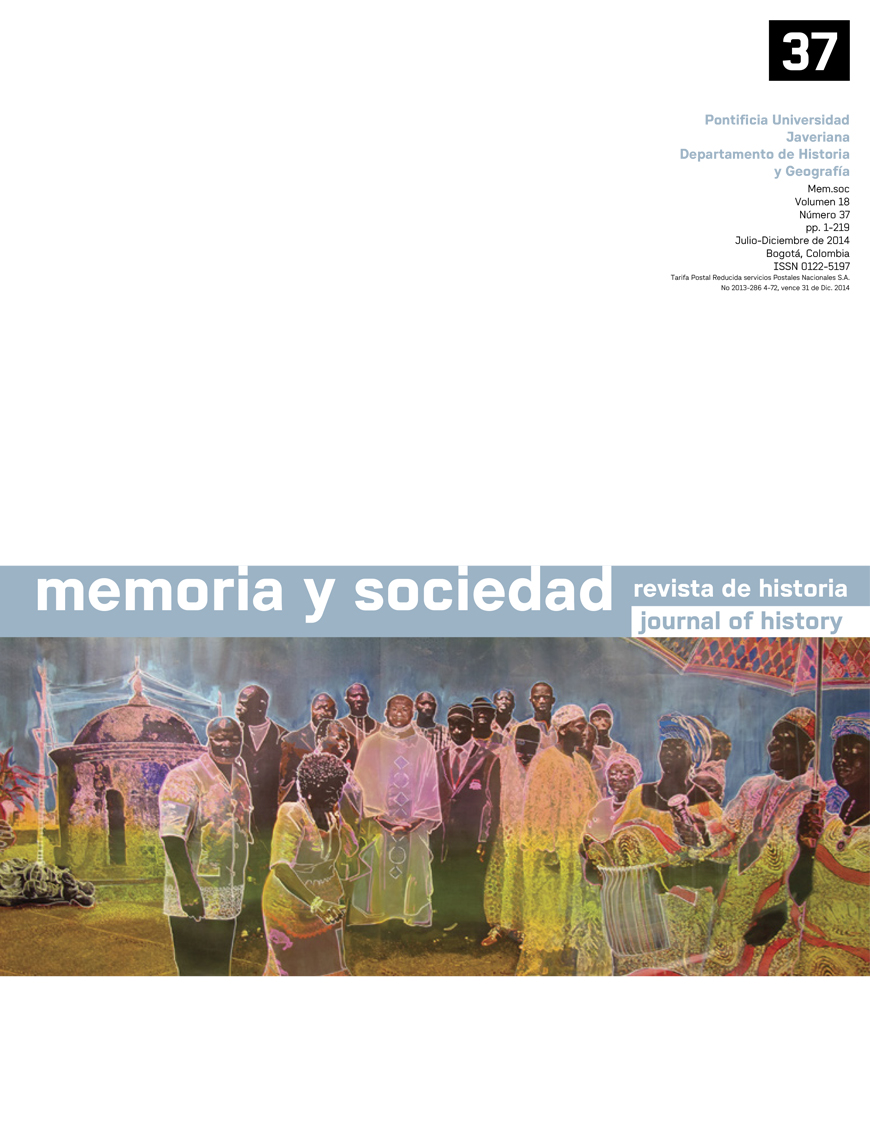Resumo
O presente artigo relata as relações entre indí- genas e comunidades negras na zona do Norte del Cauca (San Rafael e Monte Teta) e do Norte del Chocó (Unguía), focando nas situações de conflito pelo território; isso com o objetivo de demonstrar que os grupos étnicos não são homogéneos nem apresentam um estado de inercia ao longo do tempo. Também pretende-se demonstrar que os conflitos territoriais são comuns e não só limitam-se às confrontações entre grupos insurgentes e população, senão que, pelo contrário, as mesmas comunidades sustem litígios pelo território. No entanto, no contexto atual em que a Lei de Restituição de Terra é uma das políticas mais importantes, este tipo de análise resulta pertinente pois bem que esta (a lei) é fundamental para as vítimas, pode mesmo intensificar ou gerar conflitos pelo território entre grupos populacionais.A revista Memoria y Sociedad encontra-se registada sob a licencia Creative Commons Versão 4.0 Internacional. Portanto, esta obra pode se reproduzir, distribuir e comunicar publicamente em formato digital, sempre que dado o crédito apropriado para os autores e a Pontificia Universidad Javeriana. Permite-se citar, adaptar, remixar, transformar, autoarquivar, republicar e criar a partir do material, para qualquer fim, mesmo que comercial, sempre que indicado apropriadamente o nome do criador, provido um link para a obra original e indicado se mudanças foram feitas. A Pontificia Universidad Javeriana não retém os direitos sobre as obras publicadas e os conteúdos são responsabilidade exclusiva dos autores, os quais conservam seus direitos morais, intelectuais, de privacidade e publicidade.
O aval sobre a intervenção da obra (revisão, correção, edição, tradução, formatação) e a subsequente difusão disponibiliza-se através de licença de uso e não através de transmissão de direitos, o que representa que a revista e a Pontificia Universidad Javeriana são isentas de qualquer responsabilidade que puder se derivar de uma prática ética pobre por parte dos autores. Em consequência da proteção fornecida pela licença de uso, a revista não fica na obrigação de publicar retratações ou alterar informações já publicadas, a não ser que a errata seja decorrente do processo de gestão editorial. A publicação de conteúdos nesta revista não representa royalties para os contribuintes.

